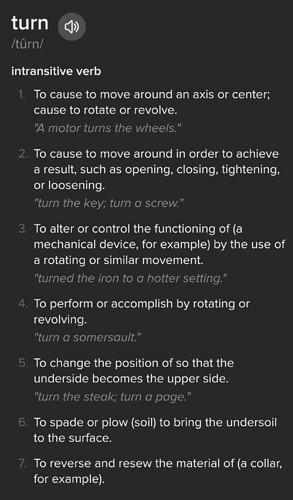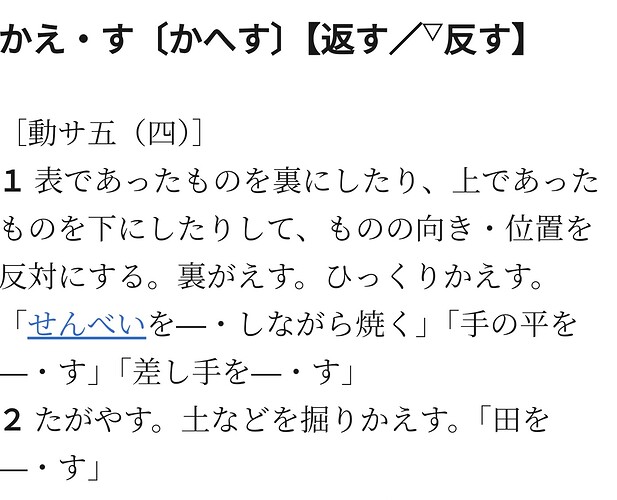Hello!
In the 返す vocab item (which means “to return (something), to restore, to put back”) there is the following example sentence:「田んぼを返す。」
With the translation being: “I plow the rice paddy. (Return)”.
Could somebody explain why is it used like that?


